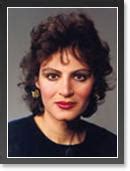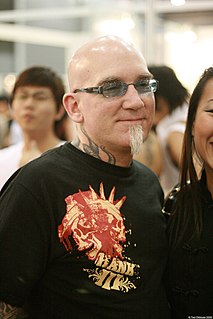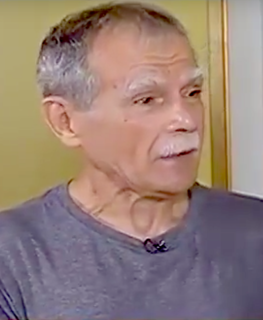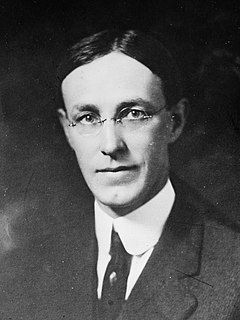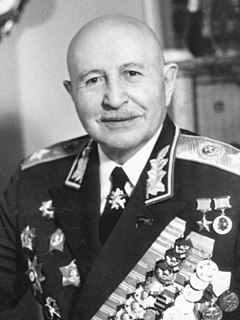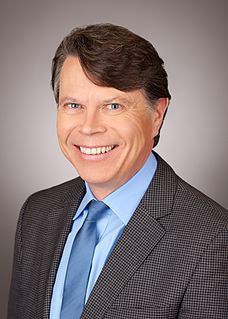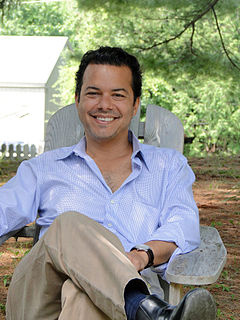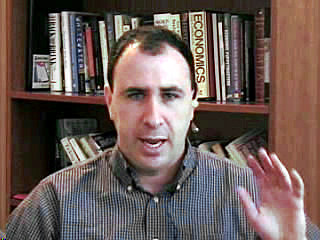Top 1200 Political Agendas Quotes & Sayings - Page 19
Explore popular Political Agendas quotes.
Last updated on November 15, 2024.
But the consequences of the whole-hearted and uncritical embrace of politics by Christians has been, IN EFFECT, to reduce Christian faith to a political ideology and various Christian denominations and para-church organizations as special interest groups. The political engagement of the various Christian groups is certainly legal, but in ways that are undoubtedly unintended, it has also been counterproductive of the ends to which they aspire.
I never imagined when I wrote my first book on Strauss that the unscrupulous elite that he elevates would ever come so close to political power, nor that the ominous tyranny of the wise would ever come so close to being realised in the political life of a great nation like the United States. But fear is the greatest ally of tyranny.
[F]or the most part football these days is the opium of the people, not to speak of their crack cocaine. Its icon is the impeccably Tory, slavishly conformist Beckham. The Reds are no longer the Bolsheviks. Nobody serious about political change can shirk the fact that the game has to be abolished. And any political outfit that tried it on would have about as much chance of power as the chief executive of BP has in taking over from Oprah Winfrey.
Both the Moral Majority, who are recycling medieval language to explain AIDS, and those ultra-leftists who attribute AIDS to some sort of conspiracy, have a clearly political analysis of the epidemic. But even if one attributes its cause to a microorganism rather than the wrath of God, or the workings of the CIA, it is clear that the way in which AIDS has been perceived, conceptualized, imagined, researched and financed makes this the most political of diseases.
Islamism implies some sort of political and social plan for Muslim people. In that classification, we find different categories. Legalist ones, traditional ones and revolutionary ones. Some of them are revolutionary but are non-violent, others are extremely violent. There are also the ones we call the literalists, like the Egyptian party Hizb al-Nour that used to be against democracy and now is getting into the political game.
More and more political analysts and weak-kneed politicians are advising the historically pro-life Republican Party to abandon its pro-life stance for political gain. My first response is that if you cannot trust a party on the value of defending human life, how can you trust it on issues like marginal tax rates?
In our society, real power does not happen to lie in the political system, it lies in the private economy: that’s where the decisions are made about what’s produced, how much is produced, what’s consumed, where investment takes place, who has jobs, who controls the resources, and so on and so forth. And as long as that remains the case, changes inside the political system can make some difference-I don’t want to say it’s zero-but the differences are going to be very slight.
I'm very pleased this military engagement together with a political road map that we developed, we were able to continue. We want to bring about a political solution there. We worked very closely together [with Barack Obama] on the issue of annexation of Crimea and Russia's attempt to actually conquer Ukraine and actually, they did so, conquer part of the territory. We tried to come to a peaceful settlement here on this.
This is sort of the epitome of the economic elite that is converging with a political elite. It's not only the banks and insurance companies. It's the war industry and private prisons. Certainly the fossil fuel agencies. It's not only that they're supporting this campaign, they're supporters of the Clinton Foundation. And where the Clinton Foundation ends and Hillary's [Clinton] political actions begin, that too is quite troubling.
There is more to American politics than fat cats and their political friends. There are serious-minded liberals who fight the good fight on many issues, ecologically oriented politicians who remain true to their cause, and honest people of every political stripe who are not beholden to any wealthy people. But there are not enough of them, and they are often worn down by the constant pressure from lobbyists, lawyers and conventional politicians.
There are a number of Americans who've been taught that, that the Constitution has nothing to do with immigration. The Declaration of Independence has nothing to do with it. It's the Statue of Liberty. And there is complete and total ignorance about it. And I maintain it's because they have not been taught the truth. And even if they have been taught the truth, they have rejected it in favor of what their political biases happen to be as their political biases relate to their narrative and the agenda.
Should any political party attempt to abolish social security unemployment insurance and eliminate labor laws and farm programs you would not hear of that party again in our political history. There is a tiny splinter group of course that believes you can do these things. Among them are a few other Texas oil millionaires and an occasional politician or business man from other areas. Their number is negligible and they are stupid.
I can't define myself as a political writer - I don't think I've earned it, and I don't function as a political writer in the way that many of the writers I admire do. It's not simply a question of context, of where I'm writing from - there is much in American society that urgently needs to be written about. I think your work is always engaged with politics in the looser sense of the word - and that looseness is itself a kind of privilege - because politics and culture are evidently intertwined.
The cities of America are inexpressibly tedious. The Bostonians take their learning too sadly; culture with them is an accomplishment rather than an atmosphere; their Hub, as they call it, is the paradise of prigs. Chicago is a sort of monster-shop, full of bustles and bores. Political life at Washington is like political life in a suburban vestry. Baltimore is amusing for a week, but Philadelphia is dreadfully provincial; and though one can dine in New York one could not dwell there.
Because of who my husband is, and our life, and also he is number one in the polls - well, you take that all together, and people are very curious about me. I'm choosing not to go political in public because that is my husband's job. I'm very political in private life, and between me and my husband, I know everything that is going on.
The overwhelming majority of Puerto Rico is completely, completely alienated from the political structure. Colonialism is really, really strong and alive in Puerto Rico. And the politicians have taken full advantage of that. We have a debt of $74 billion, caused primarily by the system and the political structure that exists in Puerto Rico.
[in 1998] I know my political ideas affect what I write but I've tried to follow the facts wherever they land. Every topic I've written about begins as a question. How do police departments behave? Why do bureaucracies function the way they do? What moral intuitions do people have? How do courts make their decisions? What do blacks want from the political system? I can honestly say I didn't know the answers to those questions when I began looking into them.
In general, I think every novel is a political novel, in that every novel is an argument about how the world works, who has power, who has a voice, what we should care about. But political novels can be boringly polemical if they end up being too black and white, too one dimensional, like war is bad, killing people is wrong.
The old battle between Christian Democrats and Social Democrats is now meaningless, not least because the social structures that underlay those parties, the church and the unions, have faded away. Nationalists and populists understood this change earlier; now the rest of the political world needs to understand that the political lines have been redrawn and it's time to change.
Recall that the United Nations commissioned Arab scholars and analysts to publish the Arab Human Development Report. What causes the backwardness, the scholars wondered, of 22 Arab states, covering nearly 300 million people? Their conclusion? Of all world regions, the Arab countries scored the lowest in freedom, media independence, civil liberties, political process and political rights.
There are people who believe that there should be a standard psychiatric examination for every presidential candidate and for every president. But these are difficult issues because they can't ever be entirely psychiatric. They're inevitably political as well. I personally believe that ultimately ridding the country of a dangerous president or one who's unfit is ultimately a political matter, but that psychological professionals can contribute in valuable ways to that decision.
'Django' was definitely the beginning of my political side, and I think 'Hateful Eight' is the... logical extension and conclusion of that. I mean, when I say conclusion, I'm not saying I'll never be political again, but, I mean, I think it's like, in a weird way, 'Django' was the question, and 'Hateful Eight' is the answer.
One of the sad things about this political season is that it allows [requires] us to get behind our big "Liberal" or "Conservative" banner and forget, for a time, that the big problems in our country have been around a long time and have been batted back and forth, caused and exacerbated, by both sides, and are more spiritual or ethical than [merely] political.
Ideally there should not be a men's movement but a gender transition movement; only the power of the women's movement necessitates the temporary corrective of a men's movement. And this creates a special challenge for men: There are few political movements filled with healthy people, yet few healthy changes have occurred without political movements.
There are some militarists who say: ‘We are not interested in politics but only in the profession of arms.’ It is vital that these simple-minded militarists be made to realize the relationship that exists between politics and military affairs. Military action is a method used to attain a political goal. While military affairs and political affairs are not identical, it is impossible to isolate one from the other.
We have won on the Arlov, Kursk, Belgorod, and Kharkov grounds. We won because the country was being defended not only by the army but by the entire Soviet people. The Socialist economy, Soviet political structure, and Marxist-Leninist ideology proved their unarguable excellence against the Fascist economy, Fascist political structure, and Fascist ideology of Germany.
We are more often than not asked, for instance, to regard Israel and Palestine as in a conflict of this kind, a framing that sets each of them on equal footing, and implicitly analogies the political situation to a fist fight, a soccer match, or a domestic quarrel. So if, then, the only two intelligible political positions are "pro-Palestinian" or "pro-Israeli," the presumption is that one's position is determined by a sentiment that wants one side to win over the other.
The characteristic feature of militarism is not the fact that a nation has a powerful army or navy. It is the paramount role assigned to the army within the political structure. Even in peacetime the army is supreme; it is the predominant factor in political life. The subjects must obey the government as soldiers must obey their superiors. Within a militarist community there is no freedom; there are only obedience and discipline.
Because of the oil-and-water relationship governments have cultivated between ethics and political economy, speaking in plain terms - spelling it out as it is - as become foreign to the public. So here goes: When government sports a surplus, this implies that the political pickpockets have stolen more funds than they can possibly dream of spending. The property is not theirs to keep! Conversely, when deficits are reported, this means that the kleptomaniacs have not been able to steal sufficient funds to cover their profligacy.
People who seek political power are, with exceptions too rare to matter, never to be trusted; at best, such people are vain and officious busybodies. People who actually achieve political power are to be trusted even less than those who seek it without success; winning elections requires a measure of deceitfulness and Machiavellian immorality that no decent person comes close to possessing.
The other side of my work is political disappointment - the realization that we are living in an unjust world. "Blood is being spilled in the merriest way, as if it was champagne," Dostoevsky says. That raises the problem of justice, what it might mean in an unjust world and whether there can be an ethics and a political practice that would be able to face and face down the injustice of the present. How might we begin to think about that?
Soldiers are the foundation of an army; unless they are imbued with a progressive political spirit, and unless such a spirit is fostered through progressive political work, it will be impossible to achieve genuine unity between officers and men, impossible to arouse their enthusiasm for the War of Resistance to the full, and impossible to provide an excellent basis for the most effective use of all our technical equipment and tactics.
I'm concerned about the negative aspect of political campaigning in american nation, which is a new phenomenon. When I ran for president against Gerald Ford and later against Ronald Reagan we never referred to each other except as 'my distinguished opponent'. And had we criticised personally our opponent it would have been political suicide, we would have been castigated and condemned for it.
Building on exhaustive research and probing into such diverse enterprises as textbook production and marketing, public education, and state-level politics, Adam R. Shapiro has situated the Scopes trial within a much broader context than any scholar before him. Trying Biology also demonstrates how ideologues have used differing interpretations of the Scopes trial to advance their agendas. By situating the trial within this much broader framework, the author has significantly enlarged our understanding of the conversations between religion and science in twentieth-century America.
Government usually doesn't work. It doesn't work because it is political. People who are wise, good, smart, skillful, or hardworking don't need politics, they have jobs. The difference between the political process and an honest life is the difference between parading around waving picket signs while hollering catcalls in front of the White House and getting up in the morning to go make a living.
I would like you to understand completely, also emotionally, that I'm a political detainee and will be a political prisoner, that I have nothing now or in the future to be ashamed of in this situation. That, at bottom, I myself have in a certain sense asked for this detention and this sentence, because I've always refused to change my opinion, for which I would be willing to give my life and not just remain in prison. That therefore I can only be tranquil and content with myself.
Part of what you need to understand is that we're forced to look back. You had the importation of third world or developing world conditions into the United States because of a bipartisan elite consensus for neo-liberalism. In other words, you had both political parties, the smarty-pants in both political parties said, hey, let's do these crazy trade deals.
What's different now is that while political leaders used to give talking points to talk radio, now talk-radio hosts are giving talking points to political leaders. It's all part of the suffocating spin cycle we're in. In media, politics and publishing, the conventional wisdom is to play to this base.
The second term of the Bush administration and first five years of the Obama presidency have been devoted to codifying and institutionalizing the vast and unchecked powers that are typically vested in leaders in the name of war. Those powers of secrecy, indefinite detention, mass surveillance, and due-process-free assassination are not going anywhere. They are now permanent fixtures not only in the US political system but, worse, in American political culture.
The enormous social change involved in a sexual revolution is basically a matter of altered consciousness, the exposure and elimination of social and psychological realities underlying political and cultural structures. We are speaking, then, of a cultural revolution, which, while it must necessarily involve the political and economic reorganization traditionally implied by the term revolution, must go far beyond this as well.
I have also been attacked by my opponents as someone seeking to purge university faculties of leftist professors. This is false. The first provision of the Academic Bill of Rights is that no professor should be hired or fired because of his or her political views. I have never myself called for the firing of any professor for his or her political views, nor would I.
The Baltic republics have invented something totally new. Do you know what? They use the word 'non-citizens' for people who have been living for decades in the territory of Baltic states and have been deprived of a number of political rights. They cannot participate in the election campaigns; they have limited political and social rights. Everybody keeps quiet about it, as if this is the way it should be. Of course, this cannot but cause a certain reaction.
It's pretty clear that Hillary Clinton was a deeply, deeply flawed alternative. She had the wrong combination of the internal political chops to muscle out all the mainstream nominations from the field, leaving only Bernie Sanders, who was unacceptable to the Democrats' party establishment. But she also had a real lack of political skill that would enable her to win the general election.
However little president Obama knows or cares about economics, he knows a lot about politics - and especially political rhetoric. 'High-speed rail' is simply another set of loft words to justify continued expansion of government spending. So are words like 'investment in education' or 'investment' in any number of other things, which serves the same political purpose.
When my father began to work with President John. F.Kennedy, we moved to Washington, D.C. I was fortunate in my pre-adolescent years, as my social and political consciousness was developing, to live at the epicentre of that dynamic, idealistic, and inspiring moment in U.S. political history, with its ethos of personal and civic responsibility, summed up so succinctly in his exhortation: "Ask not what your country can do for you, but ask what you can do for your country."
Congress has created and funded a huge peacetime military that has substantial abilities to wage offensive operations, and it has not placed restrictions on the use of that military or the funds to support it, because it would rather let the president take the political risks in deciding on war. If Congress wanted to play a role in restricting war, it could - it simply does not want to. But we should not mistake a failure of political will for a violation of the Constitution.
The [Burmese] government appears to be more interested in stamping out political activity than drug addiction. Very few university students on the campus could get away with engaging in political activities, but they seem to be able to get away with taking drugs. We have heard that it is very easy to obtain drugs on the university campuses.
That's the one thing a politician mustn't have - political opinions or principles. He can have prejudices - indeed he must have prejudices and share all the popular political superstitions of the moment as ardently as he can. But he must not have principles. He must never let the people suspect that they cannot eat their cake and have it. He must promise them a defense program and a higher standard of living. He must never use that dreadful little word or.

